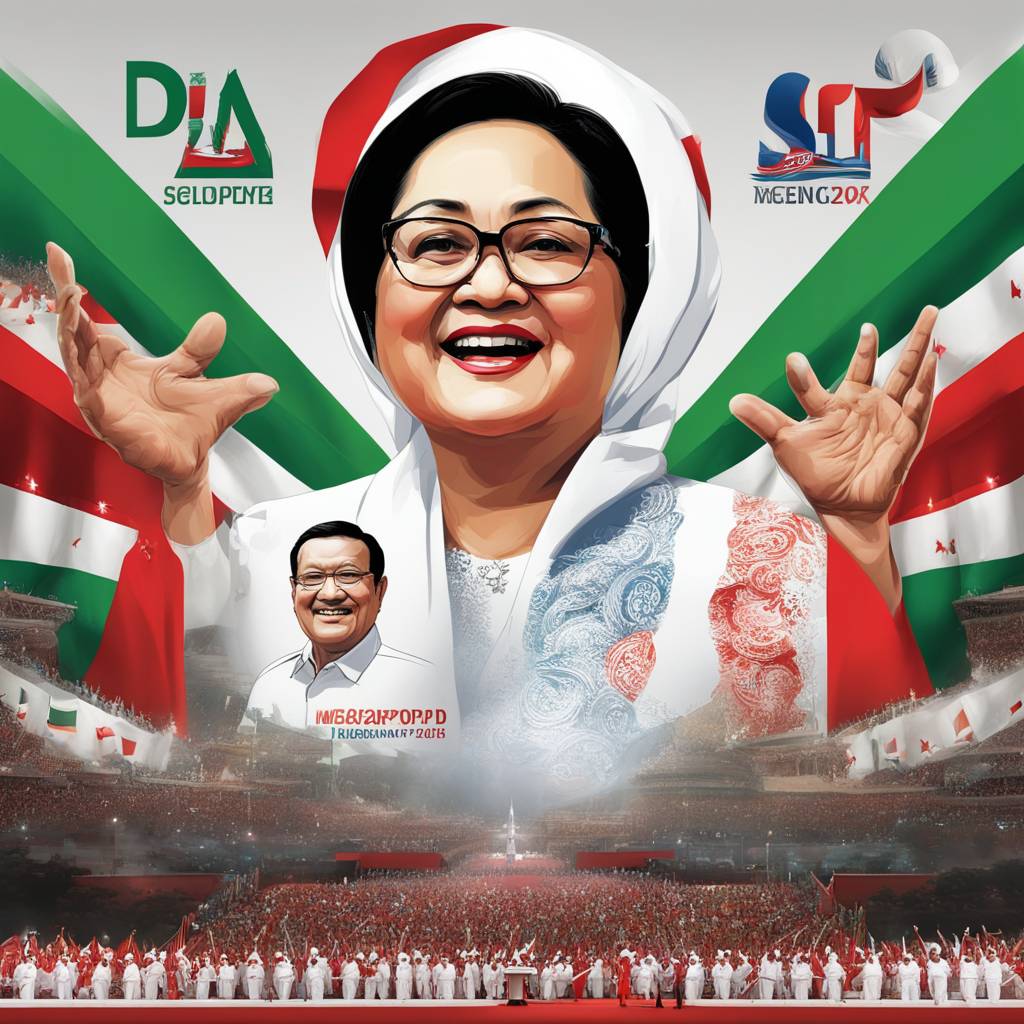Despite winning the 2024 legislative election in Indonesia, the Indonesian Democratic Party of Struggle (PDI-P) has not confirmed whether it will be an opposition party when Mr. Prabowo Subianto becomes president. This silence is raising questions and speculation among analysts who believe that it indicates a dilemma within the party. The PDI-P, led by Megawati Sukarnoputri, has traditionally been seen as a party that is willing to challenge authority and stand up for its beliefs. However, the uncertainty surrounding its stance towards the incoming president has left observers wondering about the party’s future direction.
Prabowo Subianto, a former general and leader of the Great Indonesia Movement Party (Gerindra), is set to become the president of Indonesia in the near future. His victory in the presidential election has put the PDI-P in a difficult position, as they must decide whether to support his administration or remain in opposition. This decision is crucial for the party’s political future and could impact its standing among voters. The choice between supporting the new president and challenging his policies will shape the PDI-P’s identity and influence its ability to shape the country’s political landscape in the coming years.
The PDI-P’s silence on its future role as an opposition or governing party is seen as a strategic move by some analysts. By keeping their options open, the party may be trying to position itself for maximum influence and leverage in the new political landscape. This ambiguity allows the PDI-P to adapt to changing circumstances and protect its interests as it navigates the shifting power dynamics in Indonesia. However, this approach also risks alienating supporters who are looking for clear leadership and a definitive stance on important issues facing the country.
The uncertainty surrounding the PDI-P’s role as either an opposition or governing party under the new administration reflects broader tensions within Indonesian politics. The country has a history of complex power struggles and shifting alliances among political parties, making it difficult to predict how the PDI-P will ultimately position itself. The party’s decision will not only impact its relationship with the incoming president but also shape its reputation among voters and influence its future electoral prospects. As the political landscape continues to evolve, the PDI-P faces a challenging road ahead as it seeks to navigate the complexities of Indonesian politics and define its role in shaping the country’s future.
The silence from the PDI-P on its future stance towards Mr. Prabowo Subianto’s presidency has sparked debate and speculation among political observers in Indonesia. Some believe that the party is biding its time and waiting for the right moment to make its intentions known, while others see it as a sign of internal divisions and uncertainty. The party’s leadership, including Megawati Sukarnoputri, may be weighing their options and consulting with key stakeholders before making a final decision on their role in the new administration. Whatever the outcome, the PDI-P’s choice will have far-reaching implications for Indonesia’s political landscape and the future direction of the country.
In conclusion, the Indonesian Democratic Party of Struggle’s silence on its future role as an opposition or governing party under the new administration reflects the complex and challenging political environment in Indonesia. The party’s decision will not only impact its relationship with the incoming president but also shape its reputation among voters and influence its future electoral prospects. As the PDI-P navigates the uncertainties of Indonesian politics, it faces a crucial crossroads that will test its ability to adapt to changing circumstances and shape the country’s political future. The silence from the PDI-P may be a calculated move to position itself strategically in the face of shifting power dynamics, but it also carries risks and uncertainties that could impact the party’s standing and influence in the years to come.













